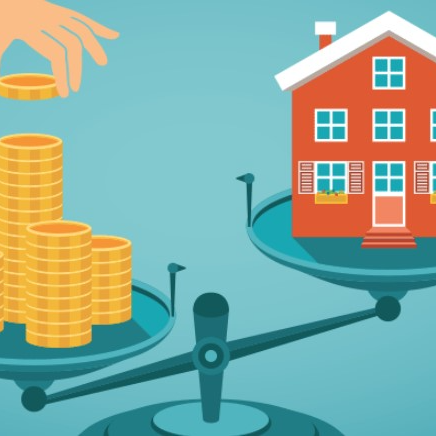You’re about to embark on an exciting and significant house-hunting venture and desire to do it properly. Whether this is your first time buying a home or you’ve been in the same one for years, preparation is necessary.
This is an intelligent choice, as the National Association of Realtors found that the average homeowner stayed in their home for just eight years in 2021, the most significant annual dip in the series’ history.
Consider these factors before purchasing a home, whether you are a first-time buyer, in the market for a more prominent place, or want to downsize. The more you learn, the better prepared you will be to make the choice that is right for you.
Get Approved Ahead of Time!
Getting a good pre-approval is crucial if you want to get a loan.
The shopper should meet with a mortgage broker or banker to determine their pricing range and whether they qualify for a loan.
Getting pre-approved for a mortgage should be the initial step prospective homebuyers take. Still, many do not take this vital step until they have already started looking at houses.
Check out Your Neighboring Areas
Researching the region is essential because there’s usually more to it than meets the eye. Many buyers don’t spend enough time investigating a house, only to find issues after they’ve made an offer.
It’s not only about the house itself but the neighborhood as well.
Verify if there is nothing about the neighborhood that would make you feel unsafe, such as the presence of sex offenders.
First, Establish Your Absolutes
Try to compile a list of must-have amenities for their new house and rank them in order of importance because the home-buying process can be daunting.
The list should include:
- Decreased frequency of criminal activity.
- Easy use of public transit.
- Access to a public school district.
- Dimensions of the dwelling.
- Kitchen cabinets, appliances, and landscaping, on the other hand, are all examples of elements that you may quickly repair.
Plan for Future Major Expenses
Purchasing a home is costly, but so is keeping it up over time, considering any significant expenses arising in the following few years, such as fixing the roof, fixing the air conditioner, or renovating the kitchen.
Avoid Spending too Much
Anxiety, excitement, or even the fear of losing a deal can cause you to spend more money than you have when house hunting, especially in the current market. For a purchase to make you pleased and at ease, however, consider the price.
Never Pick Just Any Spot and Call It Home
Location is an essential factor to consider when buying a house.
Note that you cannot change location, which might be a huge issue after someone acquires a home in an area they’re unsatisfied with. Before deciding on a place, you should consider your personality and the neighborhood’s desirability together.
Make No Other Large Purchases While Escrow is Open.
Although purchasing a house is a massive step in your life, there are probably other, much more expensive, endeavors on your list. It is not unusual for buyers to make a significant purchase (like a car) during escrow, be careful of that.
Debt to income (DTI) is used by mortgage lenders and banks when deciding whether or not to extend credit. They become less inclined to grant a loan if your debt-to-income ratio rises too high.
A massive purchase like a car could mess with your DTI, so you should hold off on any other significant financial decisions until after closing.
Contact Information:
Email: [email protected]
Phone: 7275557890













